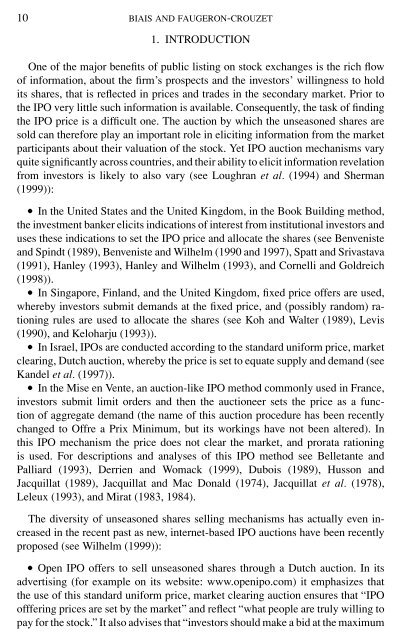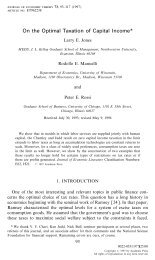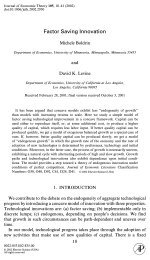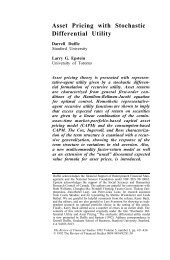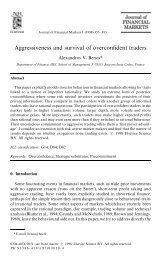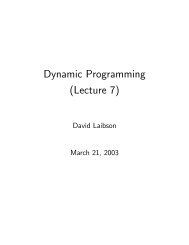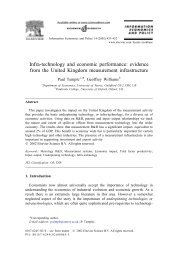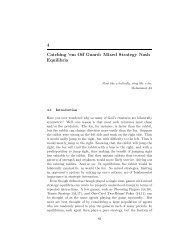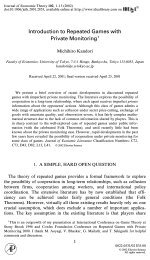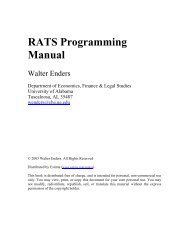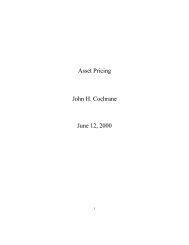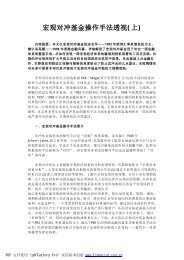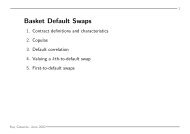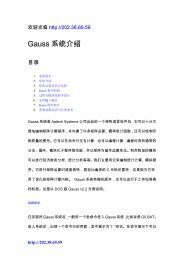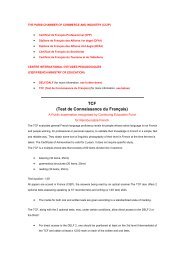IPO Auctions: English, Dutch, ... French, and Internet
IPO Auctions: English, Dutch, ... French, and Internet
IPO Auctions: English, Dutch, ... French, and Internet
You also want an ePaper? Increase the reach of your titles
YUMPU automatically turns print PDFs into web optimized ePapers that Google loves.
10 BIAIS AND FAUGERON-CROUZET<br />
1. INTRODUCTION<br />
One of the major benefits of public listing on stock exchanges is the rich flow<br />
of information, about the firm’s prospects <strong>and</strong> the investors’ willingness to hold<br />
its shares, that is reflected in prices <strong>and</strong> trades in the secondary market. Prior to<br />
the <strong>IPO</strong> very little such information is available. Consequently, the task of finding<br />
the <strong>IPO</strong> price is a difficult one. The auction by which the unseasoned shares are<br />
sold can therefore play an important role in eliciting information from the market<br />
participants about their valuation of the stock. Yet <strong>IPO</strong> auction mechanisms vary<br />
quite significantly across countries, <strong>and</strong> their ability to elicit information revelation<br />
from investors is likely to also vary (see Loughran et al. (1994) <strong>and</strong> Sherman<br />
(1999)):<br />
• In the United States <strong>and</strong> the United Kingdom, in the Book Building method,<br />
the investment banker elicits indications of interest from institutional investors <strong>and</strong><br />
uses these indications to set the <strong>IPO</strong> price <strong>and</strong> allocate the shares (see Benveniste<br />
<strong>and</strong> Spindt (1989), Benveniste <strong>and</strong> Wilhelm (1990 <strong>and</strong> 1997), Spatt <strong>and</strong> Srivastava<br />
(1991), Hanley (1993), Hanley <strong>and</strong> Wilhelm (1993), <strong>and</strong> Cornelli <strong>and</strong> Goldreich<br />
(1998)).<br />
• In Singapore, Finl<strong>and</strong>, <strong>and</strong> the United Kingdom, fixed price offers are used,<br />
whereby investors submit dem<strong>and</strong>s at the fixed price, <strong>and</strong> (possibly r<strong>and</strong>om) rationing<br />
rules are used to allocate the shares (see Koh <strong>and</strong> Walter (1989), Levis<br />
(1990), <strong>and</strong> Keloharju (1993)).<br />
• In Israel, <strong>IPO</strong>s are conducted according to the st<strong>and</strong>ard uniform price, market<br />
clearing, <strong>Dutch</strong> auction, whereby the price is set to equate supply <strong>and</strong> dem<strong>and</strong> (see<br />
K<strong>and</strong>el et al. (1997)).<br />
• In the Mise en Vente, an auction-like <strong>IPO</strong> method commonly used in France,<br />
investors submit limit orders <strong>and</strong> then the auctioneer sets the price as a function<br />
of aggregate dem<strong>and</strong> (the name of this auction procedure has been recently<br />
changed to Offre a Prix Minimum, but its workings have not been altered). In<br />
this <strong>IPO</strong> mechanism the price does not clear the market, <strong>and</strong> prorata rationing<br />
is used. For descriptions <strong>and</strong> analyses of this <strong>IPO</strong> method see Belletante <strong>and</strong><br />
Palliard (1993), Derrien <strong>and</strong> Womack (1999), Dubois (1989), Husson <strong>and</strong><br />
Jacquillat (1989), Jacquillat <strong>and</strong> Mac Donald (1974), Jacquillat et al. (1978),<br />
Leleux (1993), <strong>and</strong> Mirat (1983, 1984).<br />
The diversity of unseasoned shares selling mechanisms has actually even increased<br />
in the recent past as new, internet-based <strong>IPO</strong> auctions have been recently<br />
proposed (see Wilhelm (1999)):<br />
• Open <strong>IPO</strong> offers to sell unseasoned shares through a <strong>Dutch</strong> auction. In its<br />
advertising (for example on its website: www.openipo.com) it emphasizes that<br />
the use of this st<strong>and</strong>ard uniform price, market clearing auction ensures that “<strong>IPO</strong><br />
offfering prices are set by the market” <strong>and</strong> reflect “what people are truly willing to<br />
pay for the stock.” It also advises that “investors should make a bid at the maximum


